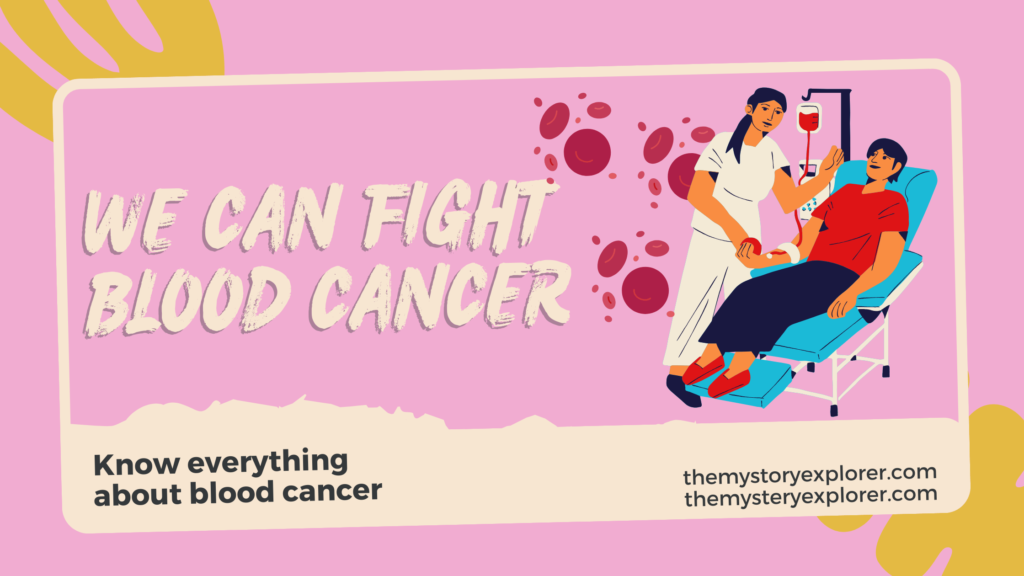Blood cancer, also known as hematologic cancer, affects the blood, bone marrow, lymphatic system, and other parts of the body’s blood-producing tissues. This diverse group of cancers includes leukemia, lymphoma, and myeloma, each with unique characteristics and treatment approaches. This article explores the key aspects of blood cancer, shedding light on its causes, symptoms, and available treatment options.

Blood Cancer: Causes, Symptoms, and Treatment Options
Causes of Blood Cancer: Blood cancers result from abnormalities in the production and function of blood cells. While the exact causes are often unknown, certain factors increase the risk of developing blood cancer. These risk factors may include genetic predisposition, exposure to certain chemicals and radiation, and specific medical conditions such as autoimmune diseases.
Types of Blood Cancer:
- Leukemia: A type of cancer that affects the blood and bone marrow, leading to the overproduction of abnormal white blood cells. Acute and chronic leukemia are the two main categories, with each having distinct characteristics.
- Lymphoma: A cancer that originates in the lymphatic system, which is a part of the body’s immune system. Hodgkin’s lymphoma and non-Hodgkin’s lymphoma are the two primary types, differing in the nature of the affected cells and their behavior.
- Myeloma: This type of blood cancer develops in plasma cells, a type of white blood cell responsible for producing antibodies. Myeloma primarily affects the bone marrow and bones.
Symptoms of Blood Cancer: The symptoms of blood cancer can vary depending on the type and stage of the disease. Common signs may include:
- Fatigue and weakness
- Unexplained weight loss
- Frequent infections
- Easy bruising and bleeding
- Enlarged lymph nodes
- Bone pain
Diagnosis and Staging: Diagnosing blood cancer often involves a combination of physical examinations, blood tests, bone marrow biopsy, and imaging studies. Staging helps determine the extent of the disease and guides treatment decisions.
Treatment Options: Treatment for blood cancer depends on the type, stage, and individual patient factors. Common treatment modalities include:
- Chemotherapy: The use of drugs to kill or slow the growth of cancer cells.
- Radiation therapy: High-energy rays or particles are used to target and destroy cancer cells.
- Immunotherapy: Boosting the body’s immune system to recognize and eliminate cancer cells.
- Stem cell transplant: Replacing damaged or diseased bone marrow with healthy stem cells.
- Targeted therapy: Drugs that specifically target cancer cells, minimizing damage to healthy cells.
While a blood cancer diagnosis can be challenging, advancements in medical research and treatment options offer hope for many patients. Early detection, proper diagnosis, and personalized treatment plans play crucial roles in improving outcomes. Ongoing research continues to enhance our understanding of blood cancers, paving the way for more effective therapies and, ultimately, a brighter future for those affected by these diseases.
